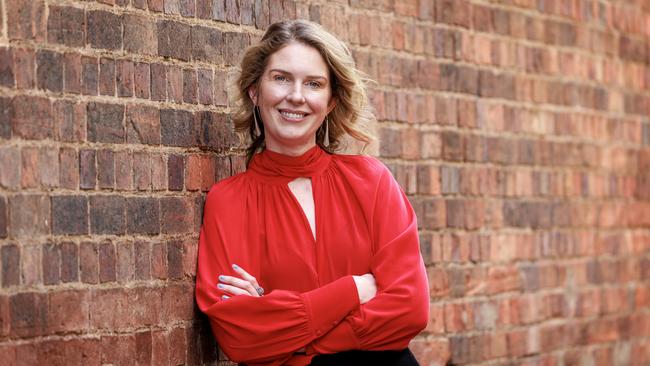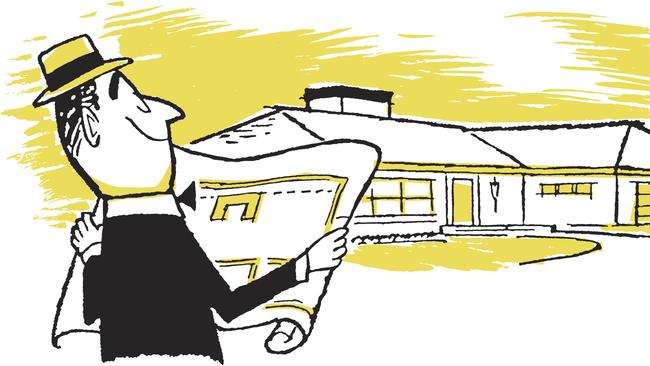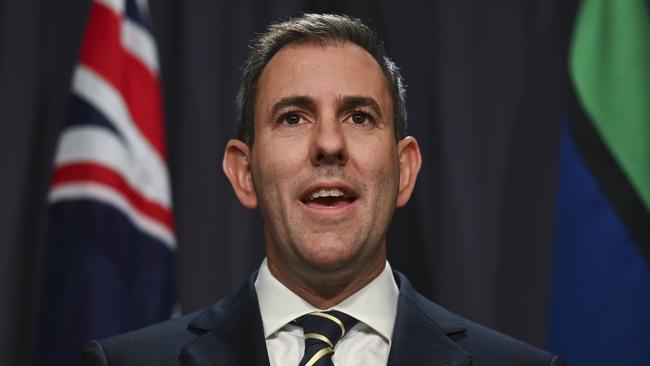PC’s new chair advocated super concession windback and home as part of the pension assets test

As part of a sweeping tax reform agenda, Ms Wood voiced the need to increase income taxes, reduce superannuation benefits and introduce an inheritance tax.
Most of us have probably heard of the Productivity Commission but may not be sure exactly what it does. As an advisory body to the federal government located within the Treasury portfolio, it provides advice on economic policy, social and environmental issues as requested by the government.
And on a total remuneration package of $651,470, the chair of the Productivity Commission earns more than the Chief of Army and Director of Public Prosecutions, meaning this prized government body has the ear of Canberra’s most senior bureaucrats when it comes to important policy settings.
Superannuation and taxation are within the purview of the Productivity Commission as evidenced by its October 2015 working paper on income tax and 2019 report into the superannuation system.
This may be a concern for those hoping that the federal Labor government continues to leave the superannuation and personal tax systems largely untouched.
According to Ms Wood, Australia faces a significant problem with regard to government spending. Simply put, the government spends too much on the elderly and does not collect enough taxes from the young.
Older Australians are living longer than ever before and their lifetime cost to the government with regard to provision of health services and social security benefits is increasing, while younger Australians are not contributing enough in taxes to cover this increase in government spending into the future.

An April 2023 Grattan Institute report co-authored by Ms Wood, named “Back in black? A menu of measures to repair the budget”, outlines an expected $50bn to $70bn per year federal government deficit that may persist for 25 years unless the government takes drastic measures to rectify the budget imbalance.
Then in a May address to the National Press Club, Ms Wood said: “While there are no easy options, there are many that make sense, especially in a fiscally constrained world. So let me embrace boldness and make some suggestions … Tax needs to be on the agenda for governments. Tax reform could contribute to higher growth.”
According to the Grattan Institute report, the biggest proposed saving of $11.5bn could be achieved if the government decided to “wind back super tax concessions”. The result for older Australians would be a new 15 per cent tax on all currently tax-free superannuation earnings. And with regard to the new 30 per cent tax on larger super earnings, this would kick in from $2m instead of the proposed $3m.
For working Australians, the annual cap on pre-tax super contributions would reduce from $27,500 per year to $20,000 per year. Div 293 tax would be tightened by reducing the income threshold $250,000 to $220,000 and also increasing the tax rate from 30 per cent to 35 per cent.
Interestingly, Ms Wood’s report notes that: “These changes would better target super tax concessions to their policy purpose, would not change savings behaviour, and would help make the system fairer.”
However, every adverse policy change to superannuation undermines the integrity of the retirement system and leads people to question what the system will look like in 10, 20, 30 years’ time when they are due to finish working and start drawing down on a super pension in retirement.
People have the choice of spending today versus saving for tomorrow (ie. retirement). And if the government keeps tinkering with the retirement system by adding more taxes and imposing more restrictions, people start to make decisions to put less money away for retirement, given the uncertainty of what the system will actually look like when they get there.
Even though the report notes that: “Superannuation tax breaks cost the budget almost $45bn a year and are projected to cost more than the Age Pension by 2036 …” the problem is that if you reduce superannuation tax breaks, fewer people save money in super, resulting in fewer self-funded retirees and more government-supported age pensioners.
In the end, the overall cost of more people on the age pension may outweigh the budget savings achieved by imposing higher taxes and more restrictions on superannuation.
In the “bolder options” section of the Grattan Institute report, inheritance taxes were raised as a key potential area for future government revenue. The report says: “Inheritance taxes are another economically efficient revenue-raising option. Australians currently pay taxes on the income they earn from working, but money received via a bequest is tax free. There is a strong economic case for levying some form of tax on unearned income … Yet despite their strong economic credentials, taxes on inheritances are typically deeply unpopular.”
Ms Wood’s Grattan Institute would also like to see the family home, which is currently an exempt asset for age pension assessment purposes, counted as an asset above $750,000 in value.
Given the average house price in Sydney is $1.33m and $923,000 in Melbourne, the average retiree in Sydney and Melbourne is at risk of having their age pension reduced or cancelled depending on the value of their other assessable assets.

The justification to add the family home into the Centrelink assets test is: “The exclusion of most home equity means well-off households – provided their wealth is largely in the family home – can continue to qualify for the pension. This means taxpayers end up underwriting future inheritances,” notes the Grattan Institute’s “Back in black” report.
And while this may leave the average person a bit shell shocked with all the proposed changes, we are still only scratching the surface.
Other proposed changes include abolishing Family Tax Benefit B for families, watering down the stage 3 tax cuts to reduce tax breaks to middle income earner, reduce the capital gains tax discount rate from 50 per cent to 25 per cent, disallowing negative gearing benefits if they help reduce tax on employment income, and increase the age people can access superannuation from 60 to 65.
The intentions behind Ms Wood’s recommendations are sound. As an economist, she can see the looming budget problem with increasing government spending and decreasing government income which may result in decades of budget deficits and national debt unless something drastic is done.
But in terms of how the federal government moves towards balancing their books, it will be an extremely difficult task. Older Australians want to enjoy their hard-earned superannuation nest eggs on their terms, without large taxes and restrictions from government, and without the threat of an inheritance tax on anything left after they pass away.
Meanwhile, working Australians already feel they are paying too much in tax. The 2019 OECD nations report shows that Australia has the second highest individual income tax revenue as a percentage of total tax revenue in the world, only second to Denmark.
Public support for any proposal to scale back CGT and negative gearing benefits and increase income tax rates is likely to be low. Probably even enough to lose an election (Bill Shorten might agree).
All eyes are now on federal treasurer Dr Jim Chalmers in next year’s May federal budget as to whether he begins a sweeping reform package on tax and superannuation or continues to maintain the status quo.
James Gerrard is principal and director of Sydney financial planning firm www.financialadvisor.com.au







The Albanese Labor government’s recommendation and subsequent appointment of Danielle Wood as new chairwoman of the Productivity Commission may be a catalyst for superannuation and tax changes over the next few years, especially if Ms Wood carries across her strong views held while chief executive of the Grattan Institute.